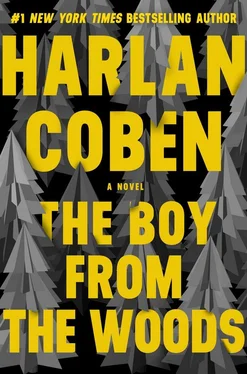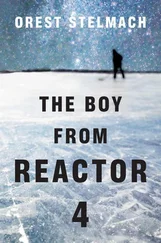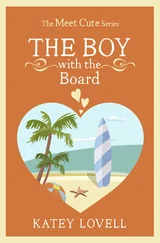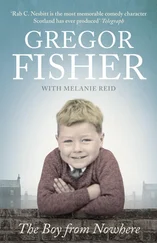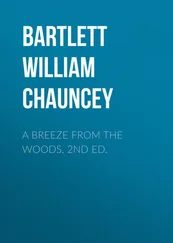Raymond put a hand on Wilde’s arm. Wilde turned and looked into the jaundiced eyes.
“I didn’t do it.”
“You can imagine what it was like — the media, the mayor, the pressure to solve the case. The cops supposedly got an anonymous tip that Anson had been buying drugs from a black kid in Deanwood, so they dragged in every black kid they could find, stonewalled, kept them awake, started up with the enhanced interrogations — again you know the deal.”
“I do,” Wilde said. “What I don’t know is why I’m here.”
Strauss pressed on. “Eventually, one kid said that Raymond sold drugs to rich white guys.”
“Marijuana,” Raymond said. “That part is true. I mostly just delivered.”
“A judge issued a search warrant, and a DC Metro detective named Shawn Kindler found a knife under Raymond’s mattress. Tests showed it was the murder weapon. You can imagine how fast it went downhill from there.”
“The knife wasn’t mine,” Raymond said. Again he met Wilde’s eye. “I didn’t do it.”
Wilde said, “Mr. Stark?”
“Call me Raymond.”
“Raymond, I’ve seen the biggest sociopaths look me in the eye like that and lie to my face.”
“Yeah, I know,” Raymond Stark said. “Me too. Every day of my life. I’m surrounded by them. But I don’t know what else to say, Wilde. I’ve spent thirty-four years in here for something I didn’t do. I’ve tried my best. I studied hard, got my high school equivalency, college degrees, even a JD. I wrote letters and briefs for other inmates and myself. But nothing happened. Nothing ever happens.”
Raymond folded his hands on the table and looked off. “Imagine being in a place like this every day, screaming out the truth every way you know how, but no one ever hears you. You want to hear something weird?”
Wilde waited.
“I have this recurring dream that I’m getting out,” Raymond said with a hint of a smile. “I dream someone finally believes me — and I get set free. And then I wake up in the same cell. Imagine that for a second. Imagine that moment when I first realize that it’s just a dream and I try to hold on, but it’s like grabbing smoke. My mother used to visit me twice a week. She did that for more than twenty years. Then they found a mass in her liver. Cancer. Ate her up. And I wonder every day, every hour, if the stress of seeing her son locked up for something he didn’t do weakened her immune system and killed her.”
“Raymond,” Strauss said, “tell Wilde how you ended up in that chair.”
Raymond slowly shook his head. “If it’s all the same, Saul, I’ll pass on that. A sad story like that won’t make you believe me, am I right?”
Wilde said nothing.
“So I’m not asking you for pity or to believe my face or my eyes,” Raymond said. “Instead I’m just going to ask you for a few more minutes. That’s all. No pleading about how innocent I am. No emotion. Just let Saul finish what he wants to say.”
Wilde was going to say that he didn’t have the time right now, that he was in the middle of an industrial-strength problem of his own, that even if he was convinced that Raymond Stark had been railroaded, it would make no difference. Wilde couldn’t do anything that Saul Strauss and his organization couldn’t do better.
What stopped him from saying that was that Wilde realized there had to be a reason, a good reason, why Strauss had driven him up. Strauss had some idea what was going on with Crash Maynard and Naomi Pine, and yet he had still insisted on making this journey. So rather than lose time protesting his presence, Wilde saw little harm in showing some respect and giving them another few minutes. It wouldn’t change anything back at Maynard Manor, which was more than ever feeling like worlds away from Sing Sing.
Raymond Stark nodded at Strauss to go ahead.
“Two years ago,” Strauss said, “we at the Truth Program discovered that Detective Kindler planted evidence in at least three cases to reach his arrest quota and up his profile as a crime fighter. The DC attorney general’s office is now being forced to reexamine a number of Kindler’s arrests. They’ve vacated one conviction already. But they’re moving slowly, and no one wants to touch the Christopher Anson murder.”
“Why not?” Wilde asked.
“Because the case was so high profile. Everyone thought Raymond was guilty — fellow officers, prosecutors, the media, Anson’s family and friends. It would be more than an embarrassment now if it came out that the knife was planted. And even if we could prove that, plenty of people would still say Raymond was the killer. It’s like OJ. Tons of people think Mark Fuhrman planted the bloody glove — but they also think OJ did it.”
Strauss handed him a grainy photograph of a young white man with a big smile and wavy hair. He wore a blue blazer and red tie. “This is Christopher Anson, the murder victim. The photograph was taken two weeks before his murder. He was twenty when he was killed, a junior at Swarthmore College. Christopher was the quintessential all-American boy — basketball captain, debate team, three-point-eight GPA. The Ansons are a big blue-blood family in Massachusetts. They summered in a huge estate in Newport. You get the idea.”
Wilde said nothing.
“I tried to approach the Anson family with what we learned about Detective Kindler. They didn’t want to hear it. In their minds, the killer is caught and got what he deserved. It’s not an unusual reaction. You’ve been believing one thing for over thirty years. You become vested and blind.”
“Saul?”
It was Raymond.
“Wilde has been very patient with us,” Raymond said. “Show him the other photo now.”
Strauss hesitated. “I’d rather put it in more context first.”
“He’ll get the context,” Raymond said. “Show him.”
Strauss reached into the manila folder and pulled out another photograph.
“At first, this didn’t mean much to us. But then Arnie Poplin made that comment.”
He handed Wilde a group shot of about thirty or forty young people, all well dressed, healthy looking, and vibrant. The photograph had been taken outdoors on white concrete steps. Some of the young people sat, some stood. The first face Wilde recognized was Christopher Anson standing second from the left on the top. Wilde quickly realized that the other portrait of Christopher Anson that Strauss had showed him had been this same photo, just cropped and enlarged.
In the background, above the smiling faces, Wilde could see the familiar white dome of the Capitol building in Washington, DC.
A chill began to creep down his neck.
“Christopher Anson spent that summer interning for a Massachusetts senator.”
Wilde’s eyes traveled along the picture. He got it now — saw it all — but he waited for Strauss to point it out. Strauss pointed to a face two away from Christopher Anson.
“That’s Dash Maynard.”
His finger moved down to the young woman who hadn’t changed much over the years. “That’s Delia Maynard, née Reese” — and then the finger slid to the face next to her — “and that, my friend, is the current senator for the great state of New Jersey, Rusty Eggers.”
Back in the Sing Sing parking lot, Wilde called the Maynards to see whether there had been any news. There hadn’t been. Two hours remained until the kidnappers promised to release Crash.
When they got back in Saul Strauss’s car, Wilde said, “So let me see if I have your theory right.”
“Go ahead.”
“Arnie Poplin claims to have overheard Rusty admit to killing someone and Dash having some kind of confession to it on tape. You figure they’re talking about Christopher Anson.”
Читать дальше
